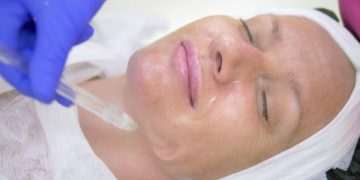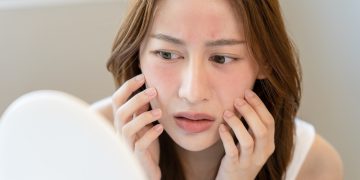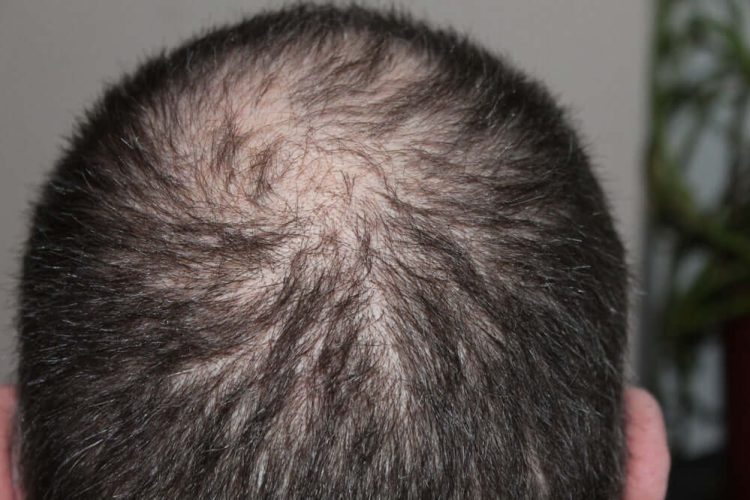Hair loss is a common concern that affects millions of people globally. While many factors contribute to thinning hair or bald patches, stress has long been suspected of being a major culprit. But can stress really cause hair loss, or is it merely a myth? In this article, we’ll explore the science behind stress and hair loss, how stress affects the body, and what you can do to protect your hair.
The Link Between Stress and Hair Loss
Stress is a powerful force, capable of influencing nearly every system in the human body. It affects our hormones, immune system, and even the way our cells function. But does it really have the power to make your hair fall out? To answer this, we need to explore how hair growth works and how stress might disrupt this delicate process.
How Hair Grows: The Hair Cycle
Hair growth follows a complex, cyclical process that consists of three main phases:
- Anagen Phase (Growth Phase): This is the active phase of hair growth, where hair follicles produce new cells that become hair. It can last from 2 to 6 years, depending on genetics.
- Catagen Phase (Transitional Phase): This short phase lasts for about 2-3 weeks. Hair growth slows, and the hair follicle begins to shrink.
- Telogen Phase (Resting Phase): The hair rests and eventually sheds. This phase can last anywhere from 3 months to a year.
Each hair follicle goes through these phases independently, which is why you shed a small amount of hair daily. Normally, about 85-90% of your hair is in the anagen phase, while the rest is in the catagen or telogen phase.
The Types of Hair Loss Linked to Stress
When stress affects the body, it can lead to different types of hair loss. The most commonly observed forms include Telogen Effluvium, Alopecia Areata, and Trichotillomania.
1. Telogen Effluvium: The Most Common Stress-Related Hair Loss
Telogen effluvium (TE) is one of the most frequent forms of stress-induced hair loss. In this condition, the body responds to stress by prematurely pushing hair follicles into the telogen (resting) phase. Stress triggers a disproportionate amount of hair to fall out at once, resulting in noticeable thinning or shedding.
While the process of telogen effluvium itself is not life-threatening, it can lead to significant emotional distress. Fortunately, the condition is usually temporary. When the stressor is removed or managed, hair growth typically resumes after several months.

Symptoms of Telogen Effluvium:
- Sudden and diffuse hair thinning
- Excessive hair shedding, particularly noticeable after washing or combing
- Generally affects the scalp, but can also affect other areas of the body
2. Alopecia Areata: An Autoimmune Disorder Triggered by Stress
Alopecia areata is another type of hair loss that has been linked to stress, though its exact cause remains unclear. In this condition, the immune system mistakenly attacks the hair follicles, leading to sudden, patchy hair loss. While the role of stress in triggering alopecia areata is still debated, many people with the condition report a history of high-stress events before the hair loss begins.
Alopecia areata can be an emotionally distressing experience, particularly if the hair loss is severe or occurs on visible areas of the body.
Symptoms of Alopecia Areata:
- Sudden, round patches of hair loss
- Tingling or itching in affected areas
- Often affects the scalp, but can also cause hair loss on eyebrows, eyelashes, and body hair
3. Trichotillomania: A Psychological Condition Linked to Stress
Trichotillomania, also known as hair-pulling disorder, is a psychological condition where individuals feel an irresistible urge to pull out their own hair. This behavior can be triggered by stress, anxiety, or emotional tension. While trichotillomania is a mental health issue, stress can exacerbate the symptoms, leading to significant hair loss and potential scarring of the scalp.
Symptoms of Trichotillomania:
- Frequent hair-pulling, often in response to stress or anxiety
- Bald spots or thinning hair
- Sometimes results in damaged hair follicles or scarring on the scalp
How Stress Affects the Body and Hair Growth
Understanding how stress causes hair loss requires a closer look at the physiological changes that occur when you’re stressed. Stress can impact your body in various ways, and many of these changes can directly affect hair follicles.
The Stress Response and Hormones
When you experience stress, your body releases hormones such as cortisol and adrenaline. These hormones prepare your body for a “fight or flight” response, increasing your heart rate, blood pressure, and energy. While these physiological changes help you respond to immediate threats, they can also have negative effects when stress is chronic.
- Cortisol: This stress hormone is often called the “fight-or-flight” hormone. Long-term elevated levels of cortisol can have a detrimental effect on hair growth. Cortisol can disrupt the normal functioning of hair follicles, leading to premature shedding or even the cessation of growth.
- Adrenaline: Adrenaline, or epinephrine, is also released during stress and increases blood flow to critical organs. In some cases, this can divert blood away from less essential areas like the scalp, weakening hair follicles and causing hair loss.
The Impact of Stress on the Immune System
Stress doesn’t only affect the body’s hormonal balance; it also weakens the immune system. When the immune system is compromised, it may become overactive, attacking hair follicles or other parts of the body. This can lead to conditions like alopecia areata, where the body’s immune cells mistakenly target hair follicles, causing hair to fall out in patches.
Stress-Induced Hair Loss: Is It Permanent?
For most people, stress-induced hair loss is temporary. In cases of telogen effluvium, once the stressor is addressed, hair growth usually resumes after several months. However, the length of time it takes for hair to return to its full thickness can vary. The emotional toll of hair loss may also make the recovery process feel longer than it is.
On the other hand, conditions like alopecia areata can be more unpredictable. While some people experience spontaneous regrowth, others may struggle with repeated episodes of hair loss. In such cases, medical treatments may help manage the condition.

Managing Stress and Preventing Hair Loss
If stress is causing your hair to fall out, addressing the root cause of the stress is crucial. Here are some strategies to help manage stress and minimize the impact on your hair.
1. Practice Relaxation Techniques
Incorporating relaxation techniques into your daily routine can help reduce overall stress levels. Consider methods like:
- Mindfulness Meditation: Taking time each day to meditate can help calm the mind and reduce cortisol levels.
- Yoga: This combines physical activity with deep breathing, making it an excellent way to manage stress.
- Breathing Exercises: Simple techniques like deep breathing can help activate the body’s relaxation response and lower stress levels.
2. Exercise Regularly
Physical activity has been proven to reduce stress and improve overall well-being. Regular exercise helps release endorphins, the body’s natural stress relievers, and can improve blood flow to the scalp, promoting healthy hair growth.
3. Improve Sleep Quality
Stress often disrupts sleep, which in turn can worsen stress. Aim for 7-9 hours of quality sleep each night. Good sleep hygiene practices, like maintaining a regular sleep schedule and creating a calming bedtime routine, can improve your sleep quality and help your body cope with stress.
4. Maintain a Healthy Diet
A well-balanced diet rich in vitamins and minerals can support hair health. Focus on foods high in vitamins A, C, D, and E, as well as zinc and iron. These nutrients can promote healthy hair follicles and reduce the risk of stress-induced hair loss.
5. Seek Professional Help
If stress is causing significant hair loss or you’re struggling with conditions like alopecia areata or trichotillomania, it may be helpful to consult a healthcare professional. Dermatologists, psychologists, and other specialists can help you develop a treatment plan tailored to your needs.
When to See a Doctor
If your hair loss is sudden, severe, or prolonged, it’s important to seek medical advice. A healthcare provider can help determine the cause of your hair loss and recommend appropriate treatments. In cases where stress is a contributing factor, managing your stress levels may be the key to halting further hair loss.
Conclusion
Stress can indeed cause hair loss, but it’s not always a permanent issue. Whether it’s through telogen effluvium, alopecia areata, or other stress-related conditions, stress can disrupt the natural hair growth cycle. The good news is that with the right approach to managing stress and taking care of your health, you can minimize its impact on your hair.
If you’re dealing with hair loss, remember that you’re not alone. Take steps to reduce stress, support your body with good nutrition and regular exercise, and seek professional guidance when necessary. With time, patience, and the right care, it’s possible to restore your hair and reclaim your confidence.












































